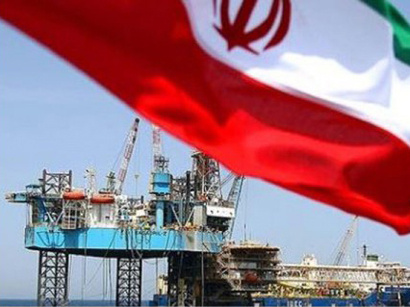Iran should reach nuclear deal to revive economy

By Sara Rajabova
The Geneva deal between Tehran and P5+1 along with Iranian president's reforms have paved the way for revival of the country's economy.
Due to the reforms in different fields and West's sanctions relief, the economic indicators of Iran have improved and the inflation and unemployment rate has decreased comparing to previous years.
In addition, the foreign companies, which left Iran because of the international sanctions, have voiced readiness to return.
Professor of economics at U.S. Northeastern University, Kamran Dadkhah told AzerNews that though there have been some improvements but much more is to be done.
"During the last years of Ahmadinejad's government, the Iranian economy was deteriorating at a high speed. During the past year the decline of the economy has slowed down. In particular, the inflation rate has slowed down. When Ahmadinejad left office, the inflation rate was about 40 percent. The latest figure published by Iran's central bank puts the inflation rate at 16.6 percent. Furthermore, the dollar exchange rate against the rial has somewhat stabilized," Dadkhah said.
He noted that partial relief of sanctions has allowed Iran to access some of its blocked oil revenues.
Central Bank of Iran has, so far, received five tranches of the $4.2 billion in frozen oil earnings agreed to be released under the Geneva deal, inked in last November.
"This has allowed an increase in imports and particularly import of gasoline, so Iranians do not have to use highly toxic gasoline that were produced domestically and badly polluted the air. In addition Iran has been able to export more petrochemicals," Dadkhah said.
On the other hand, he noted that the Iranian economy is still suffering from a depression and many factories and businesses remain closed. He added that the unemployment rate, especially among youth, is high.
The expert stressed that Iran should come to an agreement with world powers to revive the economy.
"Recently, Iranian government published a document describing its plan to get the country out of stagflation. In order to get Iran's economy out of depression, the Iranian government has to come to terms with the P5+1 and sanctions are lifted. In addition, Iran needs to attract foreign capital and technology and that requires a safe environment for capital and business. The government has a long way to go and has to move much faster," Dadkhah said.
Senior fellow at Nanyang Technological University's S. Rajaratnam School of International Studies, James M. Dorsey also said easing of sanctions would allow Iran to achieve economic growth.
"Real benefits to the Iranian economy will only accrue if and when sanctions get lifted as a result of a successful conclusion of talks to resolve the nuclear issue. Iran has benefitted from a changed attitude towards it and significant anticipation among potential foreign investors. It needs however to clinch the nuclear deal to reap the real benefits," Dorsey said.
Iran and the six world powers kicked off their sixth round of talks this year in the Austrian capital, Vienna, on July 3 to discuss drafting a final nuclear accord.
The P5+1 and Iran reached an interim pact last November under which Iran won some relief from economic sanctions in return for reining in some of its nuclear activities.
After reaching an interim deal, foreign companies voiced their intention to resume their activity in Iran, especially in the energy sector.
In late 2013, Iran named seven Western oil companies it wanted back in its vast oil and gas fields if international sanctions are lifted and said it would outline investment terms in April next year.
Iranian Oil Minister Bijan Zanganeh named the seven in order: Total of France, Royal Dutch Shell, Italy's ENI, Norway's Statoil, Britain's BP and U.S. companies Exxon Mobil and ConocoPhillips.
Zanganeh also said that Iran has begun talks with leading Western energy companies to attract them back to the country.
